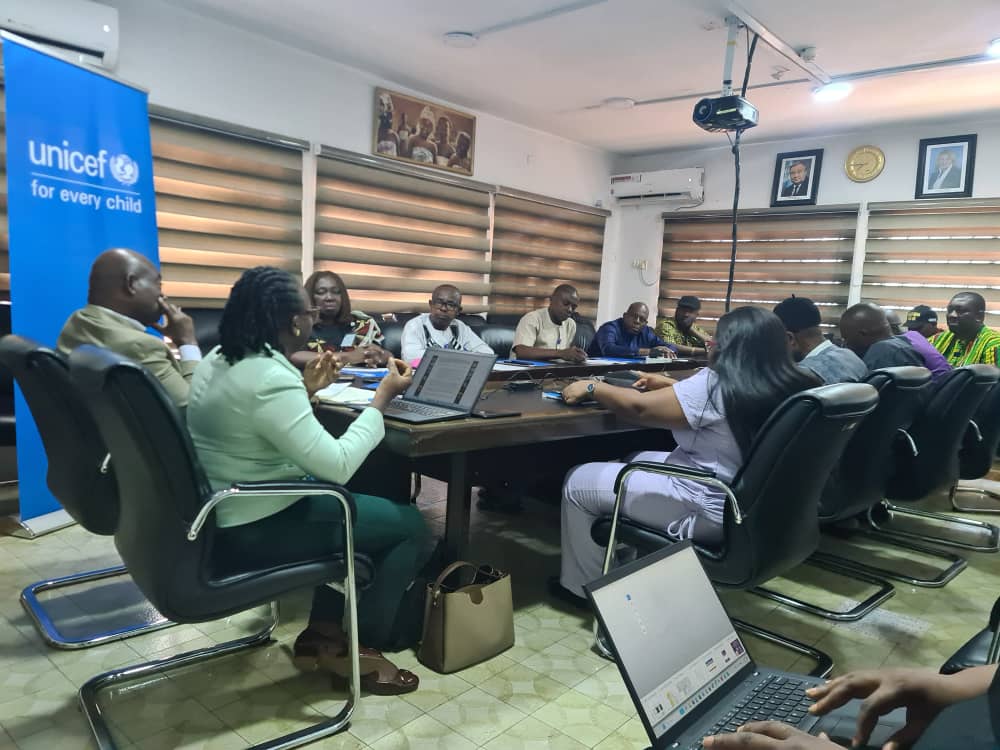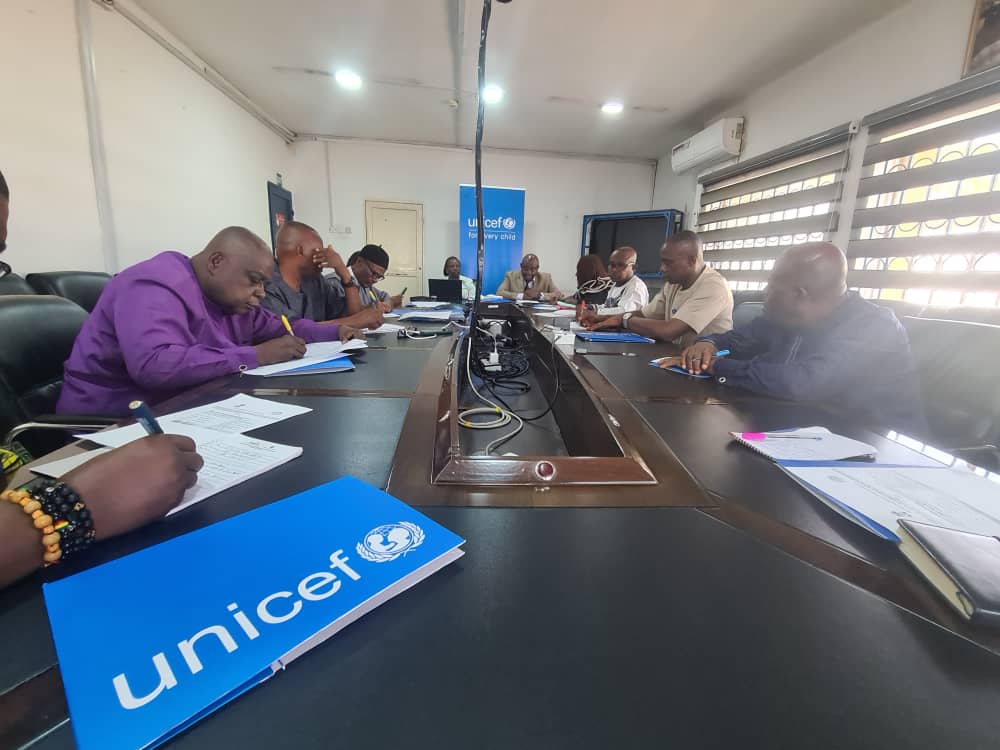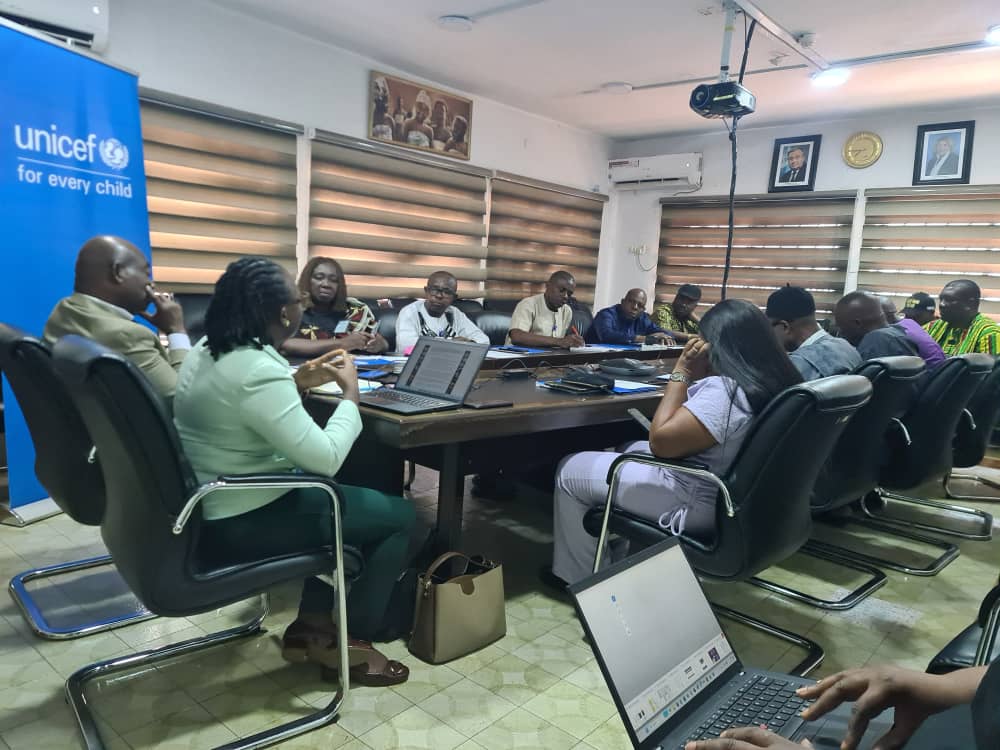By: Ify Obi.

The United Nations Children’s Fund, UNICEF has urged all stakeholders to renew their commitment to sanitation.
Making the call in an address at Zonal media dialogue to commemorate this years world Toilet Day organized by UNICEF in collaboration with Broadcasting Corporation of Abia State at Conference Room, UNICEF Enugu, the Chief of Field Office, UNICEF Enugu Field Office, Dr Olusoji Akinleye
stressed the need to increase investments, implement strategies, and champion innovations that bring us closer to achieving universal access to sanitation by 2030.
He stated that the day was intended to raise awareness on importance of toilet facilities, especially among the myriads of people globally living without access to safe toilets.
Dr Akinleye noted that World Toilet Day which comes every 19th day of November with the theme ” Toilet a place for peace is contributing to the Countdown to 2030 accelerating action to tackle the global sanitation crisis and achieve Sustainable Development Goal (SDG) water and sanitation for all by 2030.
According to Dr Akinleye about 3.5 billion people globally do not have access to safely managed sanitation services, while In Nigeria, the situation is even more critical. While some progress has been made recently, less than 3 out every 5 members of the population has access to basic sanitation services which translates to about 95 million people lacking access to basic sanitation services, and 48 million people practicing open defecation (out of which 18 million are children).
In commemorating this year’s campaign, UNICEF highlighted three key messages which included
Toilets as a place for peace , space which aught to be safe and secure, Toilets are a place for protection in which barrier needed to be between us and our waste as well as Toilets are a place for progress, implying that Sanitation is a human right which protects everyone’s dignity, and especially transforms the lives of women and girls.
He enlisted some of the limitations for ODF Attainment in Nigeria to include
Insufficient High-Level Leadership, Governance and Accountability, Funding and Investment Gaps Sanitation expenditure, Limited Private Sector Involvement, Lack of Strong and Consistent Public Awareness and Engagement Clean Nigeria Campaign struggling to maintain momentum, with minimal grassroots mobilization as well as Low involvement of traditional and religious leaders which hampers community adoption of sanitation and hygiene practices.
In her own presentation, the WASH Specialist, UNICEF Field Office, Enugu, Mrs Rebecca Gabriel, regretted that a lot of people are living without access to toilet facilities which resulted to continued Outside Defecation and called on government to follow all the laid down procedures to achieve ODF status.

She attributed slow pace of ODF in Nigeria to limited private sector participation in sanitation and non implementation of approved fund noting that 168 billion naira was approved for ODF but only 15 billion was implemented.
She urged stake holders to invest in toilet constructions describing toilet as very very important area of our life and equally charge people to take advantage of Sato Pans and Sato Stool which is cheaper to maintain
Earlier in her speech, the communications Officer,UNICEF, Enugu Field Office, Enugu, Dr Ijeoma Onuoha Ogwe called on media practitioners to champion the awareness creation of the negative effect of Outside Defecation highlighting how sustainable sanitation is essential to a healthy and stable society.
The Director/ Desk Officer BCA, Umuahia, Mr Nkpa Okezie in his remarks commended UNICEF for their effort to ensure Nigeria achieve ODF by year 2030 and seeked for increased media awareness
